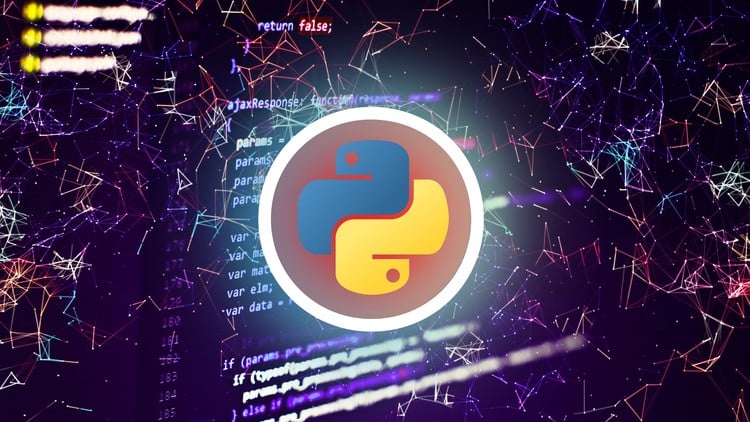
Machine Learning Tutorial: Python-Based Predictive Analytics
⏱️ Length: 5.6 total hours
⭐ 4.22/5 rating
👥 35,665 students
🔄 August 2024 update
Add-On Information:
Note➛ Make sure your 𝐔𝐝𝐞𝐦𝐲 cart has only this course you're going to enroll it now, Remove all other courses from the 𝐔𝐝𝐞𝐦𝐲 cart before Enrolling!
-
Course Overview
- Embark on a comprehensive journey into Python Machine Learning, meticulously crafted to transform you from a beginner enthusiast into a confident practitioner ready for ‘pro’ applications.
- This tutorial, ‘Machine Learning Tutorial: Python-Based Predictive Analytics’, offers an accelerated yet thorough pathway to mastering essential concepts and practical applications using the industry-standard Python ecosystem.
- Despite its efficient 5.6-hour duration, the course delivers high-impact learning, ensuring you grasp core ML principles and immediately apply them to build predictive models.
- Benefit from a curriculum recently updated in August 2024, guaranteeing access to current best practices and relevant tools in the fast-evolving field of artificial intelligence.
- Join a vibrant community of over 35,665 students who have elevated their skills, reflecting the course’s proven effectiveness and a strong 4.22/5 rating for its clarity and practical value.
- Focus on developing an intuitive understanding of how machine learning models function, from initial data exploration to deployment, all within a hands-on, Python-centric environment.
- This program is your essential guide to unlocking the power of predictive analytics, equipping you with the knowledge to extract valuable insights from complex datasets.
-
Requirements / Prerequisites
- No prior machine learning experience is required; this course is specifically designed for complete beginners in the ML domain.
- A basic familiarity with general computer operation and file navigation is assumed for a smooth learning process.
- While not strictly mandatory, a foundational understanding of high-school level algebra and basic statistics will aid in comprehending underlying algorithms.
- Access to a computer (Windows, macOS, or Linux) capable of running standard Python development environments like Jupyter Notebooks is essential.
- An active internet connection is needed to download course materials, necessary libraries, and access online resources.
- Possess a keen interest in data science, predictive analytics, and strong motivation to build practical skills.
-
Skills Covered / Tools Used
- Master the robust ecosystem of Python libraries essential for data science, including NumPy for numerical operations and Pandas for advanced data manipulation.
- Gain proficiency in using Scikit-learn (sklearn), the most popular and versatile machine learning library in Python, to implement a wide array of algorithms efficiently.
- Develop strong data visualization skills using libraries such as Matplotlib and Seaborn to effectively communicate insights and understand data distributions.
- Acquire the ability to systematically evaluate machine learning models using various metrics pertinent to different problem types (e.g., accuracy, precision, recall, F1-score).
- Learn techniques for effectively splitting datasets into training, validation, and testing sets to ensure robust and unbiased model performance assessment.
- Implement cross-validation strategies to build more reliable and generalizable machine learning models, reducing the risk of overfitting.
- Practice hyperparameter tuning methods to optimize model performance and find the best configuration for your algorithms.
- Understand the practical applications of different machine learning models, including their strengths and weaknesses in real-world scenarios.
- Develop hands-on experience in building end-to-end predictive models for both regression and classification tasks.
- Utilize integrated development environments (IDEs) like Jupyter Notebooks for interactive data analysis and model development.
- Explore methods for handling common data challenges such as missing values and categorical data encoding, crucial steps in any data science pipeline.
- Build a foundational understanding of model interpretability, learning to glean insights from your machine learning models’ decisions.
-
Benefits / Outcomes
- Upon completion, you will confidently conceptualize, build, and deploy your own machine learning models using Python for various predictive tasks.
- Possess a strong foundational understanding, empowering you to tackle real-world data science challenges and contribute effectively to analytical projects.
- You will be equipped to start building a compelling data science portfolio, showcasing practical projects developed throughout the course.
- Open doors to entry-level roles in data science, machine learning engineering, or data analyst positions, gaining a competitive edge.
- Gain the analytical mindset required to approach complex datasets, formulate relevant questions, and derive actionable insights through machine learning.
- Feel confident in reading and understanding machine learning research papers and documentation, setting the stage for continuous learning and professional growth.
- Be proficient in transforming raw data into valuable information, capable of making data-driven predictions and recommendations.
- Lay a solid groundwork for specializing in more advanced machine learning domains, such as deep learning or natural language processing.
-
PROS
- Highly Accessible: Designed specifically for beginners, making complex concepts easy to understand and apply.
- Project-Based Learning: Emphasizes practical application, allowing you to build real-world skills and a portfolio.
- Python-Centric: Focuses on Python, the leading language for machine learning, ensuring industry relevance.
- Up-to-Date Content: Recently updated in August 2024, guaranteeing the latest tools and best practices.
- Positive Community Feedback: High rating of 4.22/5 from over 35,000 students attests to its quality and effectiveness.
- Efficient Learning Curve: Delivers substantial knowledge in a focused 5.6-hour format, ideal for busy learners.
- Strong Foundation: Provides a robust understanding of core ML principles, preparing you for advanced topics.
-
CONS
- Limited Depth for Advanced Topics: While comprehensive for beginners, the short duration might mean less extensive coverage of highly advanced or niche machine learning algorithms and theories.
Learning Tracks: English,Development,Programming Languages
Found It Free? Share It Fast!